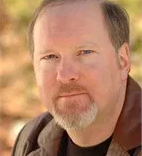Writing Productivity Tip #2—DEFY THE EMPTY PAGE
A series of eleven tips to help you get more time for writing, and to produce more writing when you do have time.
In any project, the most difficult word to type is often the first one. With a 500 page novel looming ahead of you, or even a 15-page short story, getting started can be like trying to push a semi truck with two fingers (your typing fingers). Staring at the empty page, or the blank screen, is an intimidating experience. But if you figure out how to facilitate getting the first word—and then the first sentence, and then the first paragraph—typed, you’ll start the whole story rolling.
Defy the empty page. Don’t let the blank screen psych you out.
In the movie Throw Momma from the Train—a writer’s movie if there ever was one!—the writer character played by Billy Crystal spends hours producing mounds of torn and crumpled sheets of paper in his efforts to complete his first sentence. “The night was…”
That’s as far as he gets, hour after hour. His agonizing struggle for inspiration provides great laughs as he paces the floor and stares at his typewriter. He thinks he’s got to get the first sentence absolutely perfect before he moves on to the next one. After all, didn’t Mark Twain claim that the difference between the right word and almost the right word was the difference between lightning and a lightning bug? However, no one will ever be struck by literary “lightning” if the author never finishes the book! And you can’t get finished until you get started.
Struggling to get your first sentence down can be a silly, but serious, hang-up. The first sentence has to be a hook, the all-important line that captures our reader—BUT worrying overmuch about getting it Just Right can cause creative paralysis to set in. You’ve GOT to start your fingers typing, or your pen writing, or your tape-recorder recording.
And the first step is to type something. Here’s an idea: If the “perfect first sentence” eludes you, then write the second sentence or the next paragraph—start going on the next step after the perfect first sentence and start telling your story. Just get the words moving. As you really get into your scene, you’ll be more in tune with what makes the best opening line. Then come back and add it.
If starting your new project still seems intimidating, try writing a memo or a short letter or two beforehand, just to get the fingers warmed up and your brain in gear. Some writers start by retyping the page they left off with the last time, or a random paragraph out of a nearby book, simply as a mechanical exercise, so long as you start writing.
Once the page isn’t empty anymore, you’re over that psychological speed bump, and before you know it, you’re off and running.
New original novel with Brian Herbert, due 0ut in Feb/March 2011
This blog series is part of a lecture I’ll be presenting at the Superstars Writing Seminar in January 13–15 in Salt Lake City, a three-day intensive workshop focused on business and careers in writing. Other instructors include Brandon Sanderson, Sherrilyn Kenyon, David Farland, Rebecca Moesta, and Eric Flint. We hope to see you there. www.superstarswritingseminars.com Note that Early Bird pricing goes up on December 1.




You must be logged in to post a comment.